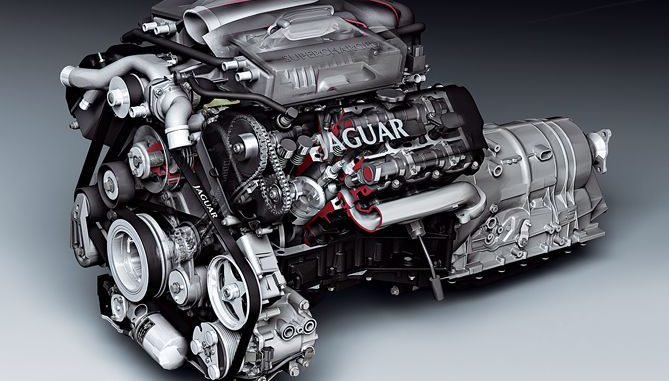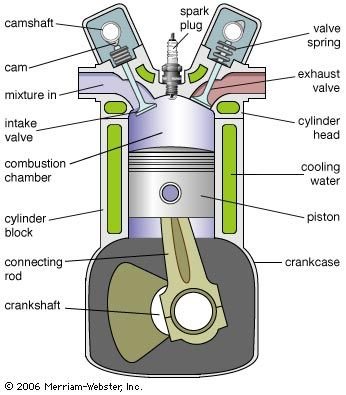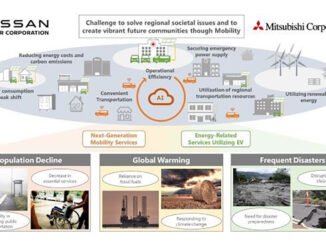
Is the future of cars Electric, or is the Internal Combustion Engine still HOT!
In a world where more and more conversations are being had about alternative fuels, emission controls and the preservation of our environment, there is interestingly very little government regulated public education about which is actually best. There is plenty being discussed in parliament, however little offered to the public by way of tests, comparisons and real data. There seem to really only be two directions or schools of thought at the moment; electric vehicles including Hybrid Electrics (ie EV’s), and/or alternatives fuels (enter Ethanol) ! And this is where conventional thinking falls into a massive hole, because it’s not as broad as it needs to be in order to get to the heart of and really solve the problem at hand. Fans of EV’s and the Hybrid generation, as in the – dare I say it – Prius lovers, will tell you about the wonderful aspects of Hybrid technology and how it’s the most efficient evolutionary step towards total environmental protection. Indeed, the largest car manufacturers as well as the smallest are all singing that same song .. how good it is to be electric ! But let’s think this one through a little; EV’s can only work by expending electrical energy that is either drawn as needed from an external power station (like electric trains), stored onboard from a previously accessed power station (as in a battery charged by a regular power point), or produced onboard via a generator (as in an alternator in a standard vehicle). So whilst it’s great that the EV is not producing CO2 emissions into the environment as it drives, all we’re doing with this solution, is moving the problem from the drive time to the charge time. You see, electricity has to come from somewhere. It needs to be produced from a power source in order to flow into our homes and buildings via the infrastructure of cables and power poles. Further, and I hope I’m not giving away any spoilers here, but power stations burn a huge amount of coal and emit a huge amount of CO2 in the process of creating electricity. If the governments of the world were to choose EV’s as the standard vehicle type, and this became the dominant type for manufacturers, then we would see a massive growth in the number of power plants required to service the charge needed by these cars. There are currently 400 coal power plants in the USA alone ! Imagine what another 400 or more would do to the environment once activated ! Now imagine the environmental impact if one of these babies were to explode ! How much CO2 will be pumped into the environment by a coal power plant on fire ?! Further to that, the Nickel-Cadmium required for rechargeable batteries needs to be mined, and usually in places where tropical forests like to live. Wouldn’t that be the greatest irony; to see Green activists and environmentalists end up driving a Prius !? So electric cars are bad ! And they don’t solve the problem; they simply move it to a different area in the pollution chain! Now what about Ethanol fuels ? These are fuels made from a vegetation source rather than the fossil fuel source which is carbon. Although Ethanols support the Internal Combustion Engine (ICE) and that’s a good thing, most IC engines require the thicker oil base of fossil fuels to protect their rings and ring bearings. Much like when old school leaded Super fuel was changed for Un-leaded, older vehicles needed to either add an additive at fuel time, or change the rubber seals for polyurethane or equivalent. In the case of Ethanol, there is no additive. So although those using environmentally friendly E10 at the bowser now feel that they are helping the environment, and saving money on the fuel they put into their cars, they are actually creating a bigger problem with eventual deterioration of their cars’ engine ! So the truth is, that whilst all eyes are on the EV’s, the ICE is not going away any time soon. And there’s good reason for that: Even the most optimistic of estimates put sales of all types of EVs at only 20 % of the U.S. market by 2020. That’s a good start, but it leaves millions of new car sales employing ICE technology, not to mention nearly a billion ICE-power cars already on the roads, hundreds of millions of which will still be on the road a As a result, the world’s major car companies, in both collaboration and competition with dozens of Fortune 500 companies and startups, are turning up the heat on ICE technology, seeking to improve the fuel and greenhouse gas performance of both new and existing vehicles. And further good news, is that improving ICE technology turns out to be easier than most would think .. technologically speaking! And much of the technology is already available, as America’s Wall Street Journal pointed out last week, referring to “a number of more mundane solutions to reduce fuel consumption of vehicles that look and operate like cars now.”
For Australians, this technology is right here, right now in the new Eco Friendly 4cyl Ford Falcon ! Producing 200kW, these 4Cyl turbo versions make as much power as their 6Cyl counterparts and burn less fuel doing it ! Now, although we’re in favour of this technology, the suggestion isn’t that we support evolution away from the bigger engines. In fact, personally, V8 and V12 SuperCars rule the automotive world and even though the same power output is available in smaller capacity engine cars, the feel, the sound and spirit is what most buyers of muscle cars and super cars relish ! And by definition, these engines will also inherit more power and be better managed whilst burning less CO2. But it is a step in the right direction. Certainly a more genuine approach to eventually solving the problem of emission controls and environmental protection.< ________________________________________________ Read FREE after Registration :- https://autobabes.com.au/fp1.php
|
________________ ________________ |





Wow!!! Appreciate the detail and every thing it’s concerning!
You have a cool website over here. I just wanna say thanks for all the interesting information on it. I’ll follow your weblog if you keep up the good work!
I think the silliest thing that we can do collectively, is to suggest that anything electric will save the planet. The best solution is as you say here, improve the efficiency of our existing engines rather than try to push towards something that simply moves the problem elsewhere.
Makes a lot more sense to use any alternative to a source that burns more coal and carbon.
The internal combustion engine will rule for a long time to come.
The more time that passes and the more we see how expensive the infrastructure really is for electric vehicles, the more we realize that this is not the real answer.